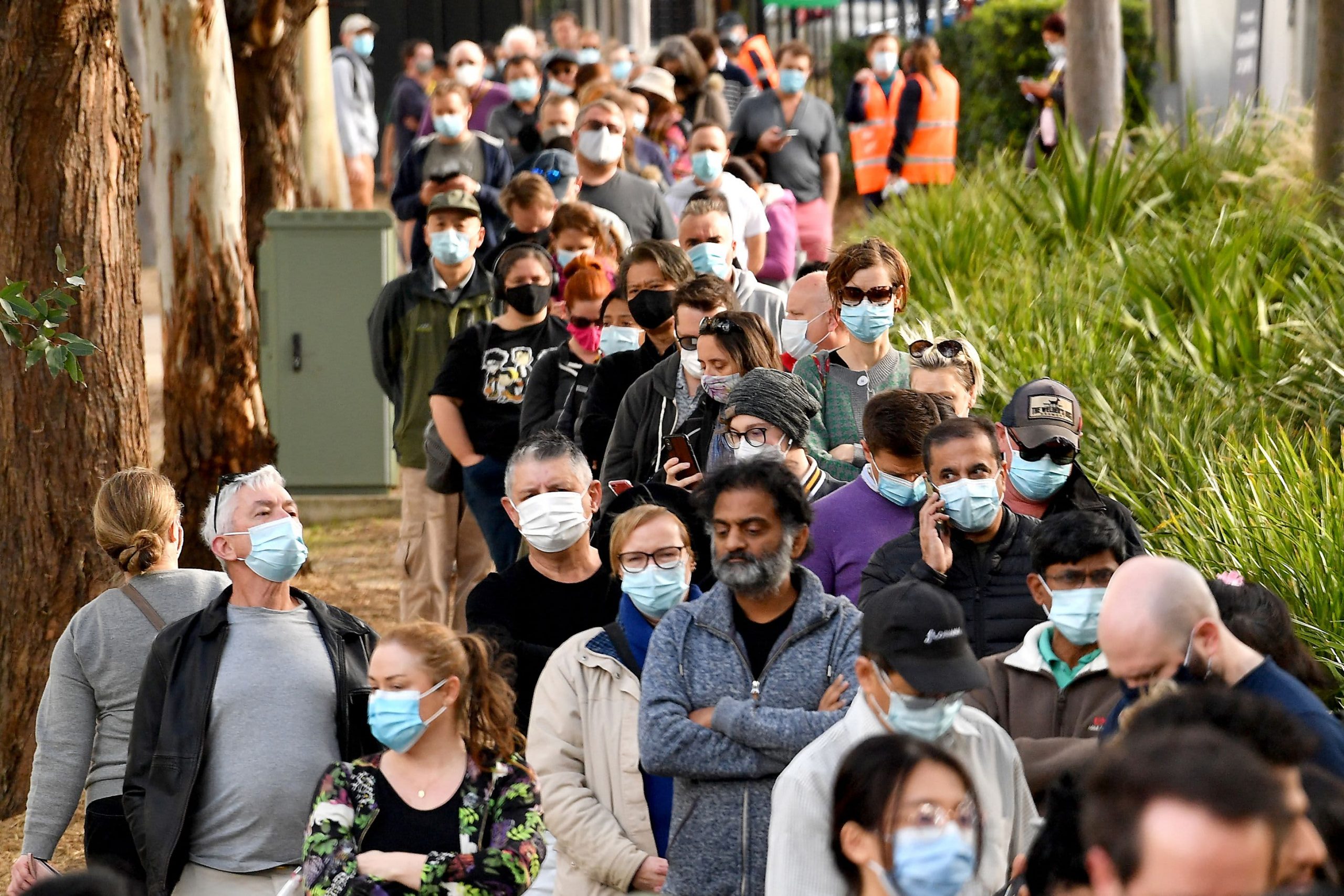Australian National approach to Delta variant desperately needed, warn experts


Epidemiologists have demanded a national approach to contain the highly transmissible Delta variant as they warn more infectious types of COVID-19 emerging overseas will continue to “punch holes in every deficiency” of the country’s pandemic response.
As infectious disease experts around Australia implored NSW to immediately enforce stage-four restrictions to contain a rapidly growing outbreak of the Delta variant, epidemiologists said our reliance on states responding to outbreaks independently was putting the entire country at risk.
The head of the epidemiological modelling unit at Monash University, James Trauer, said the emergence of the Delta variant in Australia and the worrying situation unfolding in NSW, where 112 new cases were reported on Monday, showed “just how enormous the holes are in our national approach”.
“We desperately need a national strategy,” Professor Trauer said. “Right now, Delta is punching holes in every deficiency in our strategy. It is a really, really dangerous situation in NSW. I’m really worried about what’s happening in NSW … and for the rest of the country.”
Some experts argue there should be national guidelines outlining when states should pull the trigger on public health measures, including consistent advice on mask wearing, border closures and a move towards harder, faster lockdowns until vaccine uptake increases, as the Delta variant proves it can outpace even the best contact-tracing efforts.
Professor Mary-Louise McLaws, a member of the World Health Organisation’s COVID-19 response team, wants a hardline national approach to containing all new variants of the virus, including Delta.
The epidemiologist said she feared it might not be possible to rein in another outbreak that was on a similar scale to Victoria’s second wave without a national response, with a variant like Delta thought to be twice as infectious as the Wuhan strain circulating last year.
She noted the outbreak in NSW was spreading much faster than Victoria’s devastating second wave.
A national approach would compel state authorities to immediately mandate mask wearing as soon as new cases of coronavirus were detected in a particular state until it could be determined how far the virus had spread, Professor McLaws said.
She said national rules could also guide triggers for lockdowns, ensuring stay-at-home-orders were enforced before clusters spiralled out of control.
“It would give a chance for authorities to quickly identify how fast and far that leak has gone and you don’t get a situation like in NSW, where there has been a six-fold increase in cases in such a short period of time.
“We need to start treating these variants of concern that are emerging with a great deal of respect.”
Describing Australia’s current state-led approach to containing coronavirus as “absolutely stupid,” Adrian Esterman, a professor of epidemiology and biostatistics at the University of South Australia, backed Professor McLaws and said a national set of rules was needed on border closures, quarantine and lockdowns.
He questioned why shops in NSW remained open when restrictions that were in place were not curbing the virus’s spread.
University of Melbourne epidemiologist Nancy Baxter supported a more nationally consistent approach to containing more virulent variants of COVID-19, but she said countrywide triggers for lockdowns could prove challenging when you have states with “very different philosophies”.
“We are kind of riding the tiger every day with the Delta variant being more contagious, and we’re on the razor’s edge as we wait for a sufficient proportion of people in the country to be vaccinated,” the head of the Melbourne School of Population and Global Health said.
Professor Trauer, who was still hopeful NSW could get on top of its latest outbreak, said new variants of coronavirus continued to emerge overseas and Australian health authorities needed to be realistic about the fact it was “impossible to suppress the Delta strain”
He said Australia must focus on national elimination of the virus until enough people were vaccinated to build immunity.
“You’d have to stay in a lockdown forever to suppress Delta,” he said. “All you can do is just try to hammer it so hard that you get back down to zero and you eliminate it again and then you can release.”
Among the new variants of COVID-19 emerging was Lambda, deemed a “variant of interest” by the WHO after spreading rapidly in South America.
It is yet to be determined how transmissible Lambda is, but researchers are concerned it could be more infectious – and possibly more vaccine resistant – than its predecessors.
In its report in mid-June, the WHO reported that “Lambda has been associated with substantive rates of community transmission in multiple countries, with rising prevalence over time concurrent with increased COVID-19 incidence” and that more investigations would be carried out into the variant.
“It’s called convergent evolution, where even in very different parts of the world, the variants pick up the same mutations and they become more transmissible and they’ve begun to show some effects of immune escape to vaccines,” Professor Trauer said.
“My biggest concern is really about the variants of this virus that we haven’t seen yet.”
When asked on Monday about a national set of rules for containing the Delta variant,federal Health Minister Greg Hunt said the Australian Health Protection Principal Committee was meeting “virtually every day” to discuss common approaches and national standards.
“One of the things we established … right at the outset, was that each state and territory would take the national principles, but apply them to the specific circumstances of their outbreak,” Mr Hunt said.
“The Delta variant, globally, we know is a more transmissible variant and that has created some of the next evolution of responses through the national cabinet and as a result of that right now everybody’s pitching in.
We understand and respect the different approaches to different circumstances on the ground within the states.”
Source: smh.com.au




